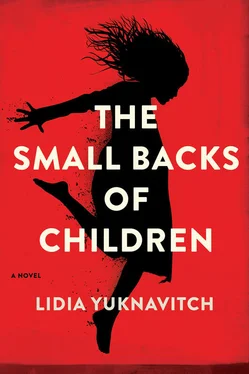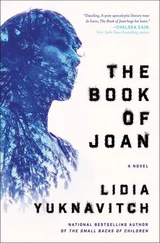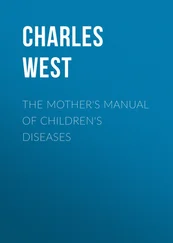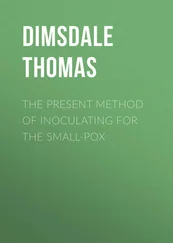Being on the West Coast makes him feel homicidal. That’s just true. Part of him thinks, Well then, go ahead and die already, my sister, my imperfect other, it’s astonishing we made it this far. You deserve it. Rest. Some other part of him bitch-slaps the first. Vulgar. Insensitive. Asshole. What kind of brother thinks a thing like that?
He retunes his ears to the scene around him. His fingers then flurry. He can’t stop typing. Typing everything the visitors, orderlies, doctors, nurses around him in the hospital-hell hallway are saying to each other. He just can’t not do it.
He sighs. He hates hospitals. Well, everyone does, but his hatred has a locus, an image arrested from the past.
His sister, as a girl of eight, on her stomach in a hospital bed. Her blood blooming up red from below, staining the white of the sheets, staining the word daughter with father and family . Blooming from her injuries. A paternal rape gone so badly wrong they had to keep her on her stomach.
He looks over toward his sister’s room, then back across the waiting room at the performance artist. The only other permanent member of the tribe. His suspicions tug at him. He narrows his eyes at her. She chews her fingernail to the quick. One side of her hair is neon blue, the other bruise blue. How old is she, even?
Where’s the filmmakerhusbandbrotherinlaw?
He stands up. He passes the performance artist in silence, walks to his sister’s door. He steps in, out, in, out, and then in. He crosses the linoleum floor, avoiding tiny fissures. He reaches out, across the antiseptic air and beeping monitor, and holds her hand. The hand of a writer and the hand of a playwright and the silence between them.
She’s a caterpillar in a cocoon . His mind goes slack and gentle. Her body is emaciated. Studying the blue veins in her eyelids and wrists, he recalls the primal scene which separated them — his boyman self on the cusp confronting his father with the truth of his assault — how he’d brought a knife, he’d meant to stick it into his father’s gut as hard as he could, but his father had quickly overpowered him — his father the brute, his father the big-bodied masculine animal — his father then knifing his mouth wider, the blood shooting up and then pooling around his teeth and tongue.
His mother a useless blur in the hallway. His sister under the bed, eyes pleading.
Later, he had his mouth repaired, in the same hospital where his sister had lingered between life and death, after the push and cut of father. And yet, the next day, even knowing what it meant to his sister, he— the words slow down in his head —
Left.
Her.
There.
It was the last time he saw her.
It’s a terrible love he carries. His guilt keeping the distance between them, East Coast and West. His guilt driving him to be the New York playwright, the star, the success. The bad brother. The toast of the town. The great gay playwright and the penthouse that he built. The abandoning one. The one who left her to the wolves.
He opens his mouth and whisper-speaks to his sister between the pulses of the heart monitor. “Where are you?” He stares at their hands. Everything they are now is in their hands. He puts his head down. He kisses her hand once, twice, three times. The magic of fairy tales and children. She doesn’t stir. People don’t know anything about love. It’s nothing, they told us. Fate moves over the small backs of children. They carry death for us the second they are born.
He returns to the hallway, pacing in and out and in and out and in and out of the doorway. He sits back down. Back to his laptop, he registers the performance artist’s Where-the-hell-have-you-been looks, but ignores them.
What is she doing here, anyway? Perched with her knees up, scowling at everyone who comes by? Pieces of words now like glimpses float in the hospital corridor: “I wonder if I can donate blood while we are here” and “I’d die for a vanilla latte but all they have here is sludge water” and “Yeah, five-thirty A.M., isn’t that the crack of shit? I hate getting up early but we have rehearsals in the basement of a free clinic and we can only use it before they open or after they close. .”
But then, suddenly, everyone around him stops their ambient babble.
The playwright looks up from his typing. The hospital people aren’t saying anything. Why aren’t they saying anything? He closes his laptop, gets up. An orderly walks by him with a tray of hot towels. He grips his own biceps, too hard. He grabs the fabric of his own shirt. The performance artist is the only other person in the room who is directly involved. He clears his throat and asks her where the filmmaker is.
The performance artist looks up with the slowness of a neon Lorax. “He said he needed to walk around.”
“Listen,” the playwright says, rubbing the back of his neck in little three-circle massages. “Do you understand what happened? Because that story they told me on the phone is nonsense. Tell me any details you know. Tell me what the doctors are saying. She looks unbelievably pale. Her skin looks as thin as a communion wafer.”
The performance artist sits mute and still. She looks to him like fatigue dumped a load of human in a hallway, like refuse. Can a person die of inside-hospital ennui?
“I bet you get a performance out of this,” he says.
“Yeah? And what the hell would that look like?”
In the urban dictionary next to the word emo is this girl. “Well,” he persists, “you know, there’s a Beckett play. It’s called Happy Days . There’s a woman in it named Winnie, who gets buried in mud. Up to her breasts.”
“You don’t say.” The performance artist eyes the elevator.
“Yes, but we never learn how she got buried.”
“Fascinating.” The performance artist gnaws at a new finger.
“Or trapped.”
She chews her fingernails.
“What’s he done? Becker? Anything on streaming?”
“Beckett. Samuel.” Briefly he wants to slap her into womanhood.
Mercifully, the elevator makes a holy ding and the filmmaker enters stage left. The playwright walks — nearly hopping — twelve steps in sets of threes to meet him.
He touches the filmmaker’s arm — Jesus, this guy is big. I mean, nothing he didn’t know, but Jesus. He could do some damage with those cannons. He pulls the filmmaker aside, whispery, needy, as if they’re guy pals or comrades or anything but what they are: the brother who abandoned her and the husband who can’t cope with her descent. “Just give it to me straight, no chaser. What’s going on? Really.”
The filmmaker’s skin looks blue-gray and heavy mugged. “She’s. . I don’t know how to answer that. None of this makes any sense.” His eyes are marbled in hues of hazel specked with brown.
“Well, what was the instigating event? All they’re telling me is that she suddenly went deaf and dumb, and went on some kind of Kafkaesque hunger strike.” He swallows, trying to lower his voice an octave.
“One morning she seemed a little distracted. Staring at the wall. That’s all. I said, ‘Baby, are you okay?’ She turned to me and smiled. We kissed. I went to work. So did she, I assume. I assume the day was like any other day — it rained, she taught her classes and I taught mine, neighborhood dogs barked, the mail came. I came home that night, she was on the floor. Unconscious.” The filmmaker draws a breath, sucking oxygen like a human vacuum.
“She just dropped? Just like that?” Don’t say DEAD don’t say dropped DEAD don’t say DEAD. The playwright’s sphincter twitches. His lover’s voice in his head: Be aware of social codes be aware of social codes be aware. But it’s not working, the hallway lights of the hospital are too bright, the filmmaker is so physical, he’s like walking physicality, and the playwright’s longing to write it all down is creeping up on him, like it always does, like black letters and words growing larger and larger until they’re walking around on the white floor before his eyes, big as people, the word DEAD bigger than any, with cartoon-muscled arms and shoulders.
Читать дальше












